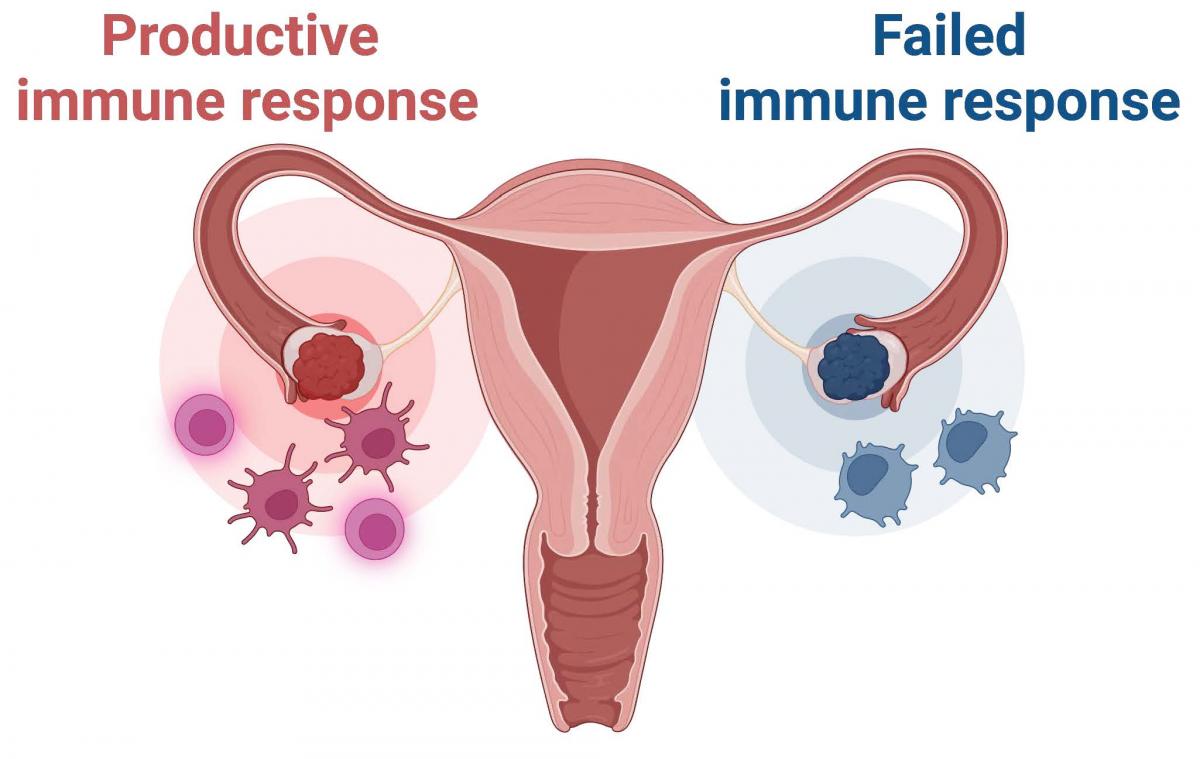High-grade serous ovarian cancer is one of the most aggressive cancer types, and thus far immunotherapeutic interventions have failed to provide survival benefits.
Four out of five women with initially controlled ovarian cancer will die from metastatic disease. This displays a critical unmet need to identify therapeutic solutions to engage the immune response to prevent these tumors from recurring. We have recently observed that tumor cell-derived type-I interferon (IFN-I) has the potential to activate components of the innate immune system which subsequently results in potent anti-tumor T cell responses. In ovarian cancer most tumor microenvironments are characterized by low levels of IFN-I, poor activation of dendritic cells and consequently poor T cell responses. We are generating murine mouse models of human high-grade serous ovarian cancer, modeling therapy resistance and the observed immune microenvironments. By doing so we aim to elucidate the role of IFN-I during the immune response towards ovarian cancer and to understand the resistance mechanism at play in this disease. The ultimate goal is to identify potential targets that may convert the local microenvironment of chemotherapy-treated ovarian cancer from immune-resistant to immune-sensitive.

Schematic illustrating T cell-inflamed (red) and non-T cell-inflamed (blue) ovarian cancer, with the T cell inflamed TME assocaited with mature DC while immature DC characterize the T cell poor TME. (generated with BioRender)


